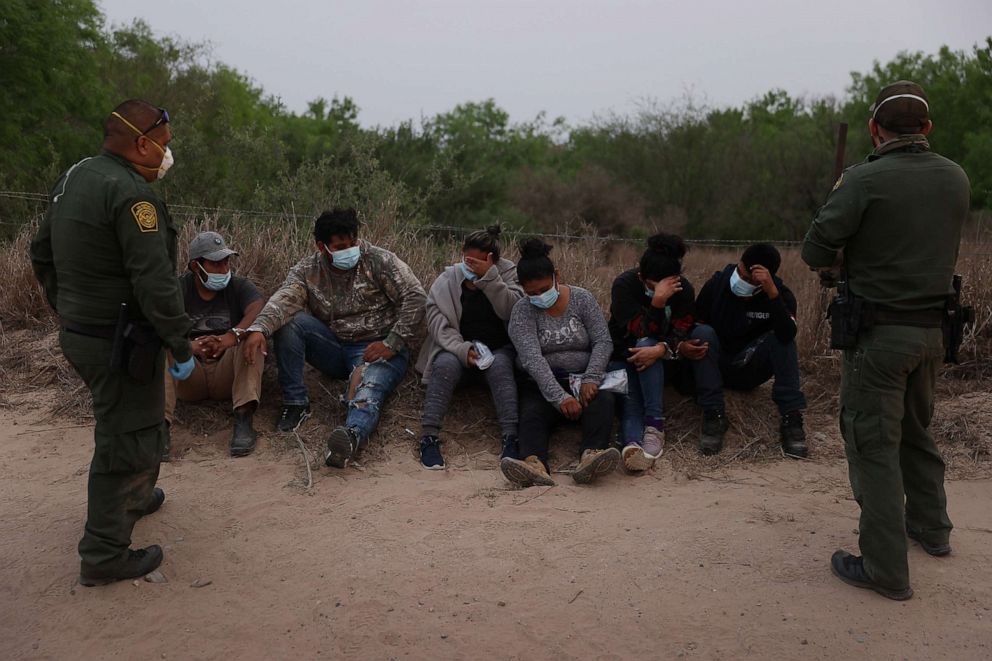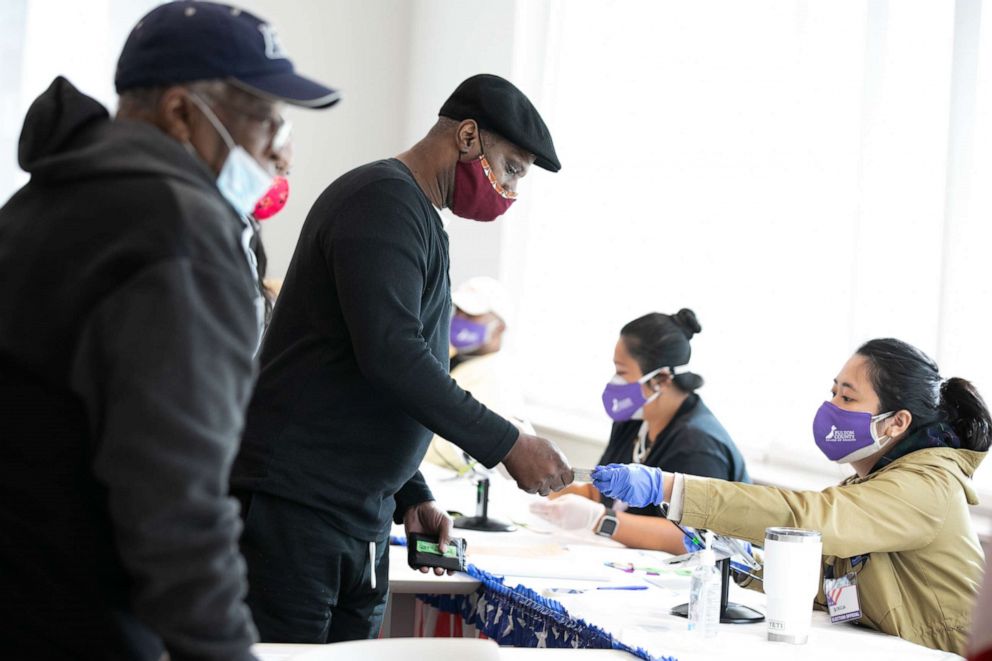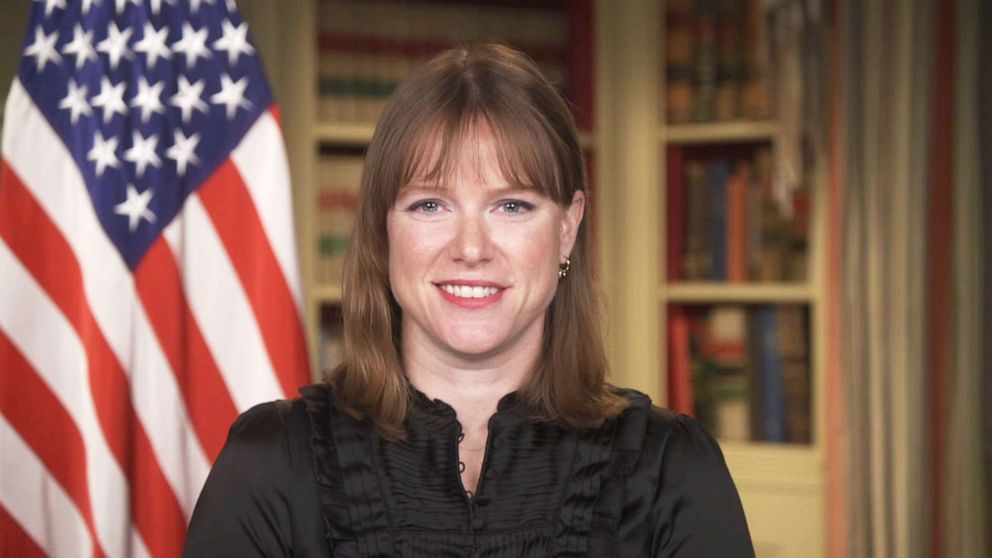Kate Bedingfield calls migrant surge a 'cyclical issue'
White House Communications Director Kate Bedingfield dismissed the record surge of unaccompanied minors crossing the U.S./Mexico border as a "cyclical issue" and denied that it is worse than any other time in history.
"These are the same kind of surges that we've seen," Bedingfield told ABC's "This Week" co-anchor Jonathan Karl on Sunday. "They're not the result of one administration's policies or another administration's policies. They're the result of, for example, weather disasters in the region. They're the result of people fleeing poverty and violence."
A Border Patrol official told ABC News that in the past month, they've stopped an average of 5,000 people a day and are expecting that number to grow as the summer months near. As of Thursday, 18,046 unaccompanied minors were in the custody of Customs and Border Protection and Health and Human Services, skyrocketing by nearly 1,000 compared to the previous day.
Bedingfield said Sunday that the administration is working to speed up the amount of time children are being held in CBP custody, because many are spending longer than the legally allowed 72 hours inside the cramped, temporary facilities.
Images released by CBP last week show dire conditions at a facility in Donna, Texas. Children are sleeping on gym mats, huddled under foil blankets and separated by plastic. It's only supposed to hold 250 people, but there are thousands inside.
The White House has not granted media access to these detention-like facilities.
"The president is working as quickly as possible to move them into facilities that are acceptable," Bedingfield told Karl, adding that the administration has opened up space at Fort Bliss and Lackland Air Force Base to house unaccompanied minors.
"It's a temporary solution. Ultimately, what we need to do is address the root causes of migration," she added.

The administration is struggling to balance its message that the U.S.-Mexico border is "closed," while also openly acknowledging that they will not turn away children who arrive alone.
But Bedingfield reinforced to Karl that the White House's message has "been very clear" that the border is not open.
"This is not the moment to do it. This is not the time to do it. The border is closed," she said.
A new ABC News/Ipsos poll released Sunday morning shows that 57% of Americans disapprove of the president's approach to the surge of migrants.
Republicans have seized on this moment to criticize the administration and a large delegation of U.S. senators visited the border this past week, characterizing the situation as a crisis.
Sen. Dan Sullivan, R-Alaska, was part of the Republican delegation and told Karl in a separate interview on "This Week" that what he saw was "shocking" and "heartbreaking."
"I've been calling for, in a respectful way, I try to work in a bipartisan way, is for the president, for the vice president, to come down and to see what we saw, to hear what we heard from officials who are on the front lines," he said.
GOP lawmakers aren't alone -- the ABC News/Ipsos poll also found 54% of Americans view this as a crisis and another 42% believe it's a serious problem, but not a crisis.
Bedingfield told Karl that this is an area where both Republicans and Democrats have historically shared a desire to work together and that "this is a moment for Republicans to come to the table, to work with us on comprehensive immigration reform."
Another battle the White House is facing comes from Georgia, the state that delivered Democrats control of the Senate. Gov. Brian Kemp last week signed a new election law that limits ballot drop boxes, adds new requirements for mail-in voting and makes it a crime for anyone other than a poll worker to offer food and water to voters waiting in line.
On Friday, Biden called the new law "Jim Crow in the 21st Century," "an atrocity," and "un-American."
"The idea that you need to suppress the vote or prevent people in this country from voting in order to win, I mean, it truly runs counter to everything that we believe as Americans," Bedingfield told Karl Sunday.

Biden said on Friday that his administration is working to figure out how to respond -- with the Department of Justice reviewing the law as well -- but "don't know quite exactly what we can do at this point."
Bedingfield reiterated the administration's support for the House-passed For the People Act and the John Lewis Voting Rights Act, but pressed by Karl if Biden has a way to bring Senate Republicans around on these bills, Bedingfield said "that's a question best left to them."
"Are they going to look their constituents in the eye and say, 'I spent my time in Washington trying to make it harder for you to cast your vote?'" Bedingfield said. "Is that really the argument that they want to take back to their constituents?"




